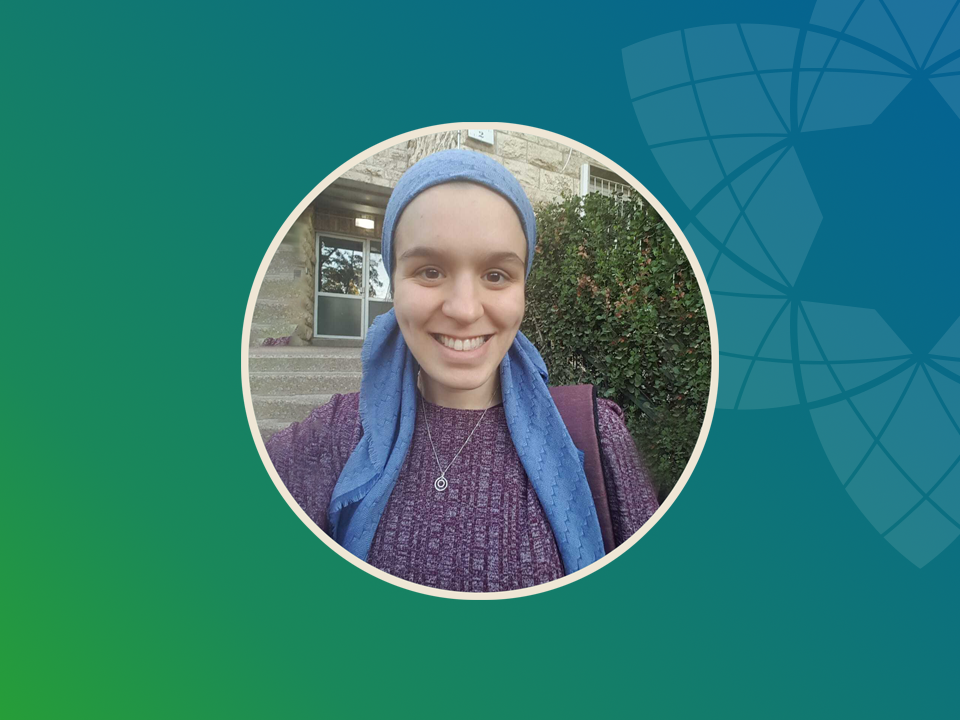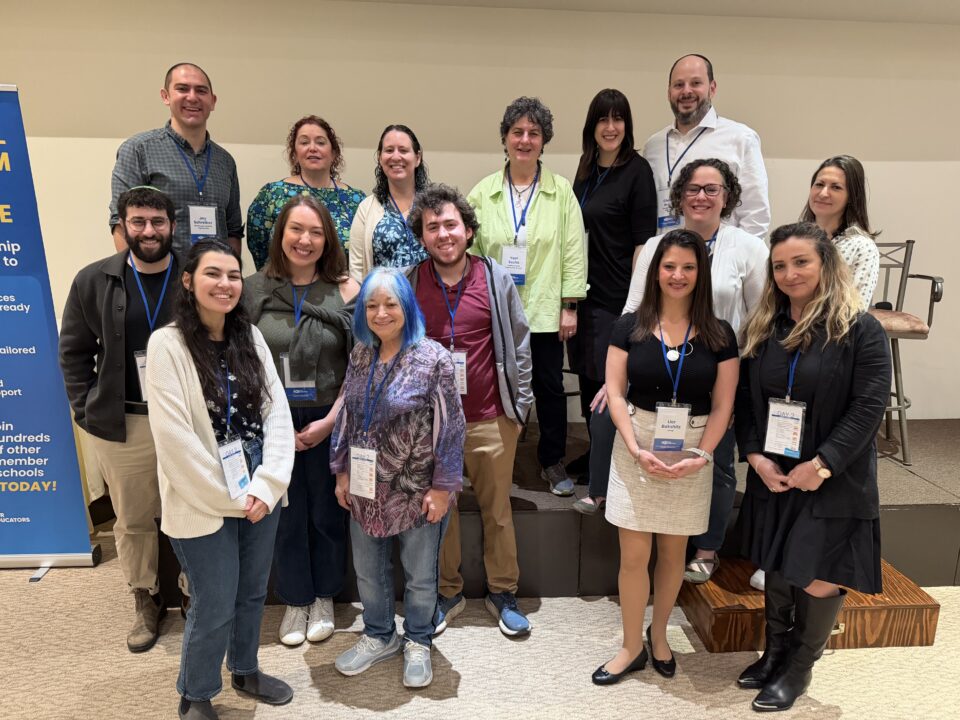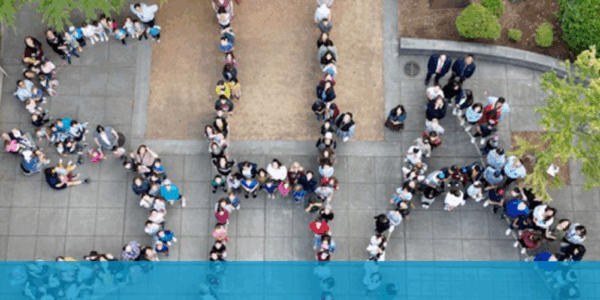
Back to summer camp, to being a kid
November 18, 2021
Day School Alumni Spotlight: Chana Meyers
November 23, 2021Success for the community and for the Jewish future relies on the success of day schools to attract, retain and educate more students.
By: Ariel Lapson
Jewish Day Schools Past, Present and Future: Issues and Trends
The Samis Foundation has been supporting Jewish education for youth for more than 25 years, and integral to that mission is Jewish day school education. This goes beyond maintaining the financial viability of the schools themselves. Healthy day schools contribute to Sam Israel’s vision for a flourishing Jewish community in Washington State.
To accomplish that goal, the Samis Foundation has been examining the current state of Jewish day schools locally and nationally, gathering data on trends in demand and enrollment, and evaluating successful interventions to grow enrollment, increase vitality and ensure sustainability of day schools. Samis is studying options to support day school growth through innovation and cooperation. As part of its new strategic plan for philanthropy, the foundation is sharing insights and supporting community convenings about the best ways to secure the future of Jewish day schools.
To that end, this fall the foundation is excited to engage Rabbi Josh Spinner, executive vice president and CEO of the Ronald S. Lauder Foundation headquartered in Berlin, and Ms. Kate Goldberg, the CEO of the Maurice and Vivienne Wohl Legacy Foundation based in London, with the goal of bringing together community leaders to formulate strategies to grow day school enrollment. Rabbi Spinner and Ms. Goldberg are founding members of Educating for Impact, an organization dedicated to supporting Jewish schools to secure and strengthen Jewish communities in Europe. In November, Rabbi Spinner and Ms. Goldberg will virtually lead a convening of day school heads, presidents and community stakeholders to think critically and practically about charting a path forward for Jewish day school education in the Washington State.
Enrollment Growth and Tuition Affordability
Seattle-area day schools had 730 students enrolled in five schools in 2002. Seattle’s Jewish population has significantly increased since 2002 to over 70,000 people, and the day schools today have around 430 students in eight schools. Samis has been studying the factors that led to this moment and is working in collaboration with the school communities to reverse enrollment trends and foster a healthy day school ecosystem.
“We are inspired by other communities who reversed trends and made changes needed to grow enrollment. Though many different means were employed, the common denominator was a commitment to Jewish education and an understanding that Jewish continuity is dependent on vibrant, intensive, immersive Jewish education” said Samis Board Chair, David Azose
Cognizant of the fact that Jewish day school affordability is a complex challenge, Samis is committed to day school education as the most impactful investment in the Jewish future. Data gathered by the foundation helps explain why the financial model for Jewish day schools differs from other private independent schools. Evidence in the Washington State indicates that most Jewish day school families aren’t necessarily shopping for private schools. In fact, they’re more likely to be comparing free public school to Jewish day schools. This means tuition expectations – and the ability and willingness to pay day school tuition – weighs heavily in their decision-making.
Concerns around affordability is evident by the number of families who feel day school tuition is cost prohibitive without tuition assistance. Another indicator is what families do when they leave day school before graduation. Of those who stay in the Seattle area, many choose public schools over private independent schools, an indication that cost may be a factor. The cost to educate and run a day school is high and investing in programs that lower the barriers to entry is very expensive. Samis funds nearly all needs-based scholarships for its seven beneficiary schools at a cost of $2.5 million, nearly half of Samis’ grants to local day schools each year. Samis is currently working with Prizmah, the National Center for Jewish Day Schools, to explore middle income affordability initiatives with the goal of making day school education more attainable for families. These initiatives are important as they are aimed at families that often fall outside of traditional scholarship programs.
Changing Demographics and Attitudes
Jewish communities across the United States are changing. The expectations of young Jewish families about how they want to raise their children differ from those of families who are looking for a more traditional path. “In general, Millennial and Gen Z parents are not as connected to institutions as previous generations. Many don’t belong to synagogues. And they value diversity and inclusion in choosing a school for their children.” said Melissa Rivkin, director of day school strategy at the Samis Foundation.
In the Washington State, there are several schools serving niche religious preferences, which resulted in smaller-sized schools that are costly to run and challenging to grow. Through its new strategic plan, the Samis Foundation is engaging with the Jewish community in the Washington State to develop solutions for the sustainability, vitality and growth of the Jewish day school community overall. Success for the community and for the Jewish future relies on the success of day schools to attract, retain and educate more students.
COVID’s Silver Lining
On a surprisingly bright side, 2020 provided optimism for enrollment. All of Seattle area day schools were able to offer in-person education following safety protocols during the pandemic. Samis’ investment in day school technology over the past ten years played a big role in setting the schools up for success. The investment enabled the schools to swiftly pivot to providing online and hybrid instruction in the early days of the pandemic. Day schools resumed in-person instruction before the public schools, and some Jewish day schools added students. This gave new families an opportunity to experience the quality and intimacy of a Jewish day school for themselves. Most of these pandemic transfers re-enrolled for this school year. According to a study recently published by Prizmah, for a majority of these transfer families they are likely here to stay, having come to realize the unique and enduring value of a Jewish education.
Experimentation and refinement of online education coming out of the pandemic may also benefit day schools and their students in the long run – expanding their access to faculty in other communities, additional courses and global connections. Restrictions inherent in a small school model can be mitigated by more flexible options, allowing students to try new things and pursue their interests more fully.
The challenges of the past 18 months have certainly had their downside, but they’ve also opened opportunities and provided flexibility that bear exploration as the community plans for supporting the vitality and growth of Jewish day school education.
A Role for The Samis Foundation
The Samis Foundation’s core commitment to a thriving Jewish community and the continuity of Jewish life through funding Jewish education means that it must continuously deepen and apply its understanding of what makes day schools vibrant, growing and sustainable. A clear view of the trends facing day schools today and in the future means Samis trustees can plan for the sustainability and growth of the Jewish day school community overall, not just at the individual school level.
“Samis is committed to supporting the continuity of Jewish life through Jewish education for youth. We want to work with day school lay and professional leadership on ways to significantly grow our community’s day school enrollment and increase the vitality and sustainability of the day school education. We’re encouraging the school communities to explore collaboration including ideas like co-location, partnerships or shared faculty or coursework. We are dreaming big because the Jewish future is too important to leave to chance.” said Connie Kanter, CEO.
This fall Samis is set to facilitate conversations within the day school community to find strategies for building the system as a whole. Preceding the November convening with Rabbi Spinner and Mrs. Goldberg, Samis recently launched its communal engagement strategy by partnering with renowned authors and educational experts Drs. Ron Wolfson and Bruce Powell. The Foundation provided every Seattle day school administrator, teacher and parent with a free copy of their book, “Raising A+ Human Beings: Crafting a Jewish School Culture of Academic Excellence and AP Kindness.” Based on the book, the authors are providing a series of webinars to intimately engage with current and future day school parents and day school leadership, about the value of Jewish day school education.
A renewed emphasis on strategic investment in the Jewish community is driving the Samis Foundation to increase transparency, engage with the community and use data to drive decision making, all with a goal of maintaining educational excellence and enhancing access to intensive, immersive, Jewish educational opportunities.
“Jewish day schools excel in measures of academic quality. The data indicates that they’re setting students up for success, for lifelong learning and for a love of Judaism and community,” said Maria Erlitz, Samis trustee and former head of a day school. “Some parents worry that their child will have a hard time going from a day school to a big college campus. But we find the opposite. Kids do quite well in college and beyond because they’re already used to connecting with their instructors and stepping up to leadership opportunities.”
The quality is there, and the outcomes are documented. Jewish day school education remains integral to Samis’ mission of ensuring the Jewish future and supporting Jewish continuity.
The Samis Foundation was established in 1994 by Samuel Israel z”l and is the largest Jewish philanthropy in Washington State. Grantmaking is focused on the foundation’s mission of supporting local Jewish education and initiatives in Israel.
Ariel Lapson is the Samis Foundation program officer for experiential education and marketing manager. She has a Bachelor’s in Business Administration with a double major in Jewish studies from Emory University, a Master’s in Islamic and Middle Eastern Studies from the Hebrew University of Jerusalem and is currently pursuing a Master’s in Israel Education from the George Washington University. She has worked as the Israel and world Jewry program manager at the Jewish Federation of Greater Seattle, assistant director for Israel Education at the Jewish United Fund of Metropolitan Chicago, and as the BBYO city director in Indianapolis, IN. She is a recipient of the Schusterman Israel Scholars award. Ariel currently lives with her family in Seattle, WA.
This article was originally published in ejewishphilanthropy. Click here to read.




